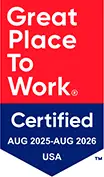HAZWOPER Emergency Response Refresher Training: Awareness-Level Responders Curriculum Online Training Course
High-impact multi-course HAZWOPER refresher training covering the essentials of emergency response operations for awareness-level responders.
Product Code:56760Make your job easier with a subscription to J. J. Keller's® Training. Get started today with a free eLearning Course!
Try for Free!
Loading product details...


